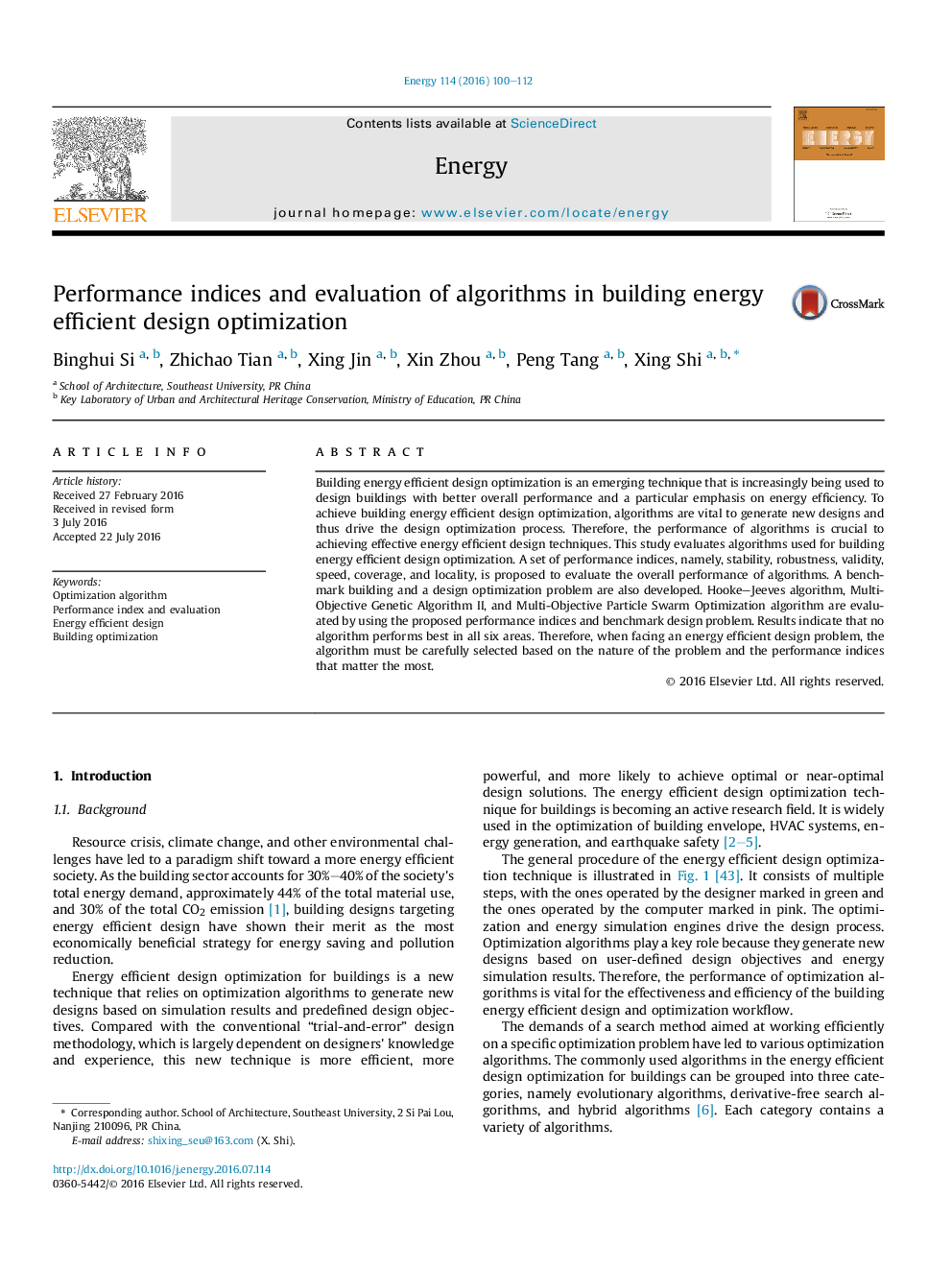| Article ID | Journal | Published Year | Pages | File Type |
|---|---|---|---|---|
| 8072831 | Energy | 2016 | 13 Pages |
Abstract
Building energy efficient design optimization is an emerging technique that is increasingly being used to design buildings with better overall performance and a particular emphasis on energy efficiency. To achieve building energy efficient design optimization, algorithms are vital to generate new designs and thus drive the design optimization process. Therefore, the performance of algorithms is crucial to achieving effective energy efficient design techniques. This study evaluates algorithms used for building energy efficient design optimization. A set of performance indices, namely, stability, robustness, validity, speed, coverage, and locality, is proposed to evaluate the overall performance of algorithms. A benchmark building and a design optimization problem are also developed. Hooke-Jeeves algorithm, Multi-Objective Genetic Algorithm II, and Multi-Objective Particle Swarm Optimization algorithm are evaluated by using the proposed performance indices and benchmark design problem. Results indicate that no algorithm performs best in all six areas. Therefore, when facing an energy efficient design problem, the algorithm must be carefully selected based on the nature of the problem and the performance indices that matter the most.
Related Topics
Physical Sciences and Engineering
Energy
Energy (General)
Authors
Binghui Si, Zhichao Tian, Xing Jin, Xin Zhou, Peng Tang, Xing Shi,
